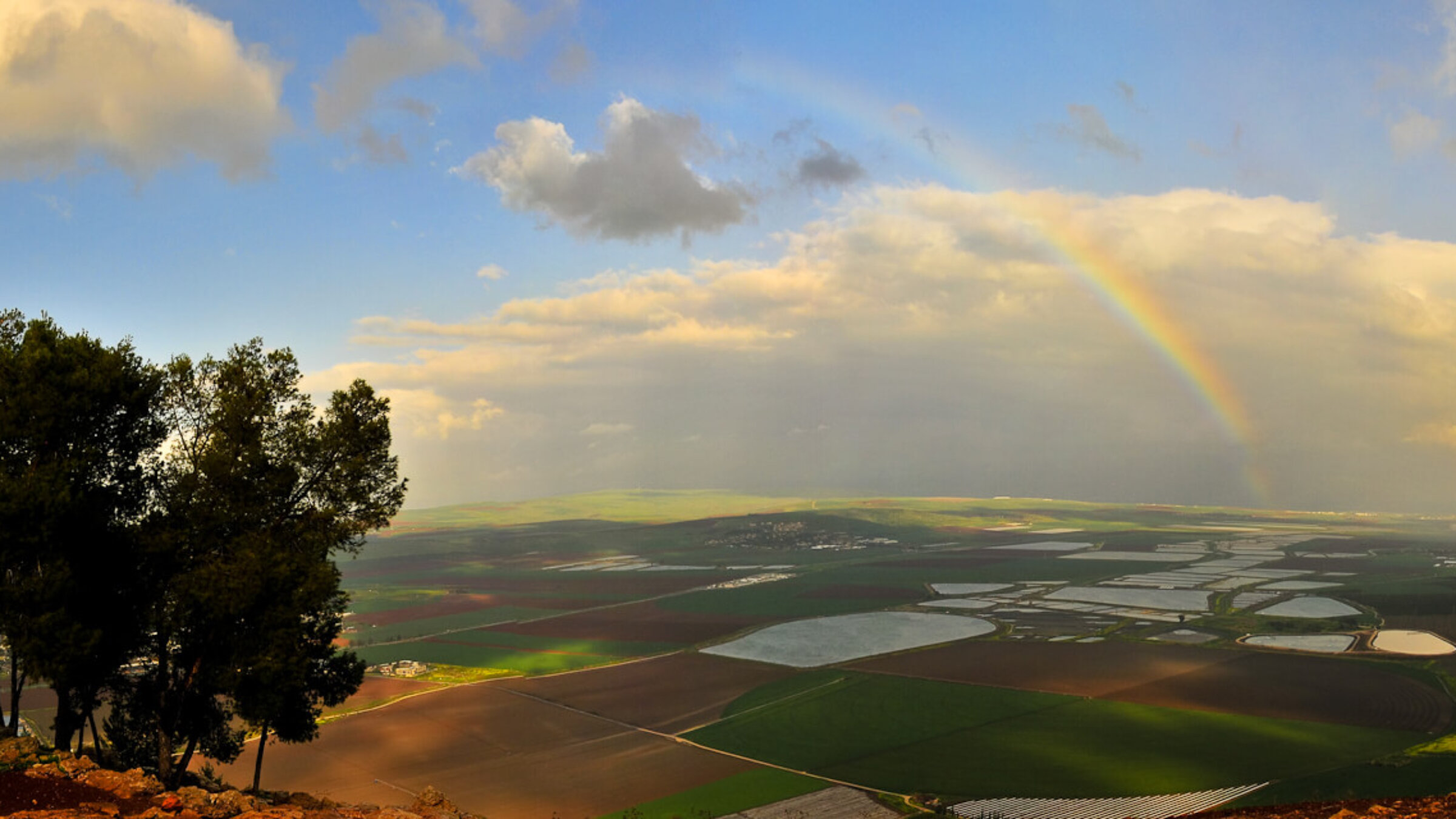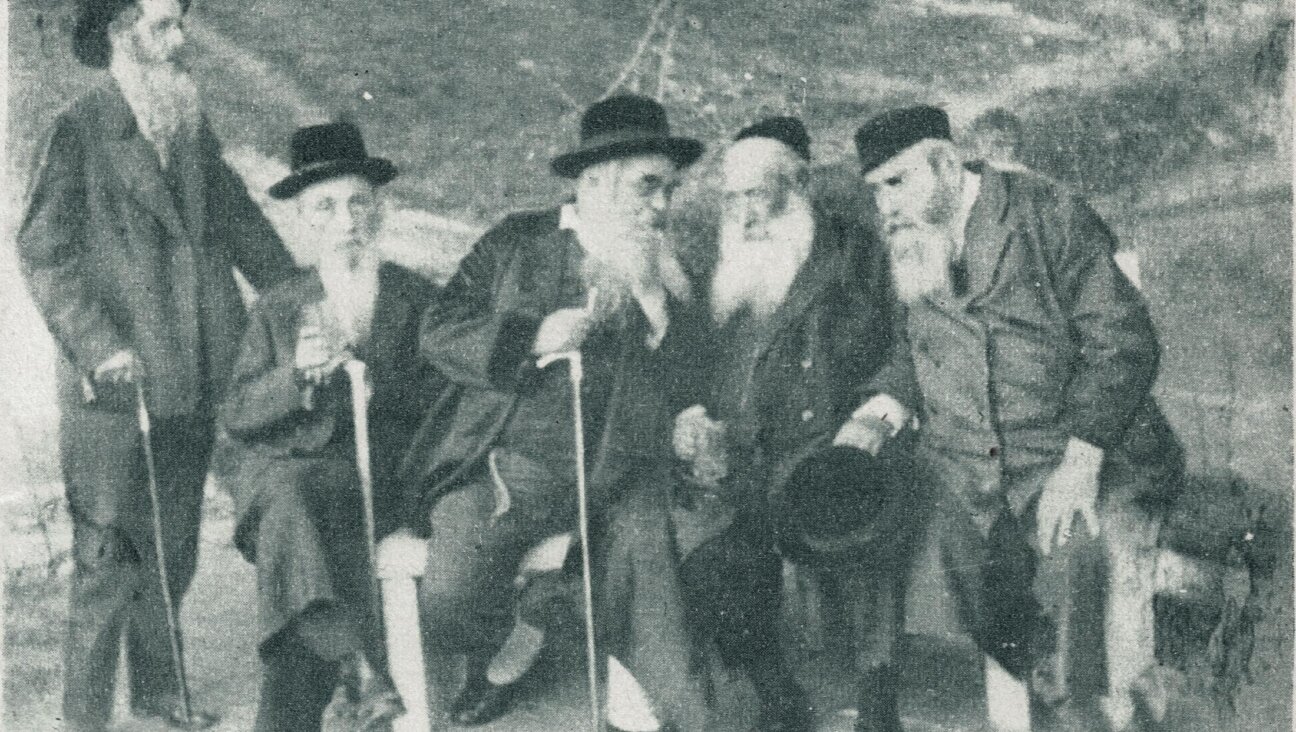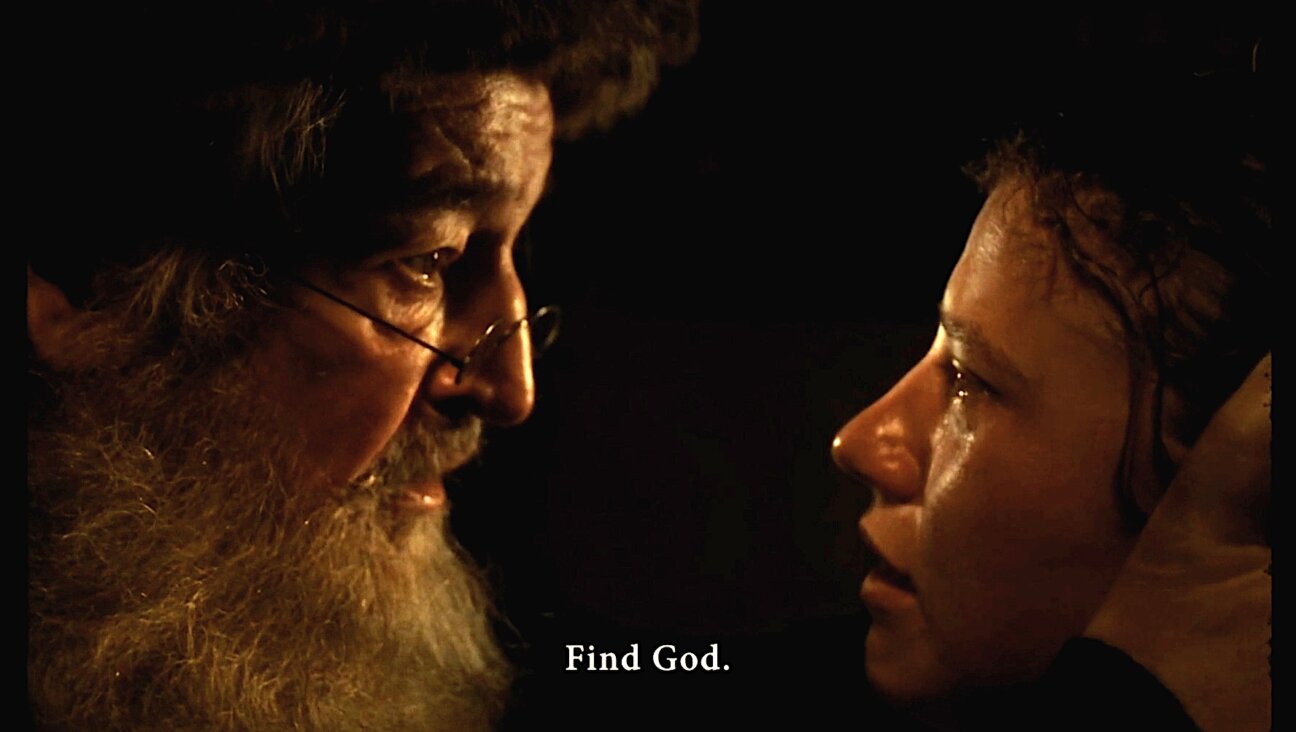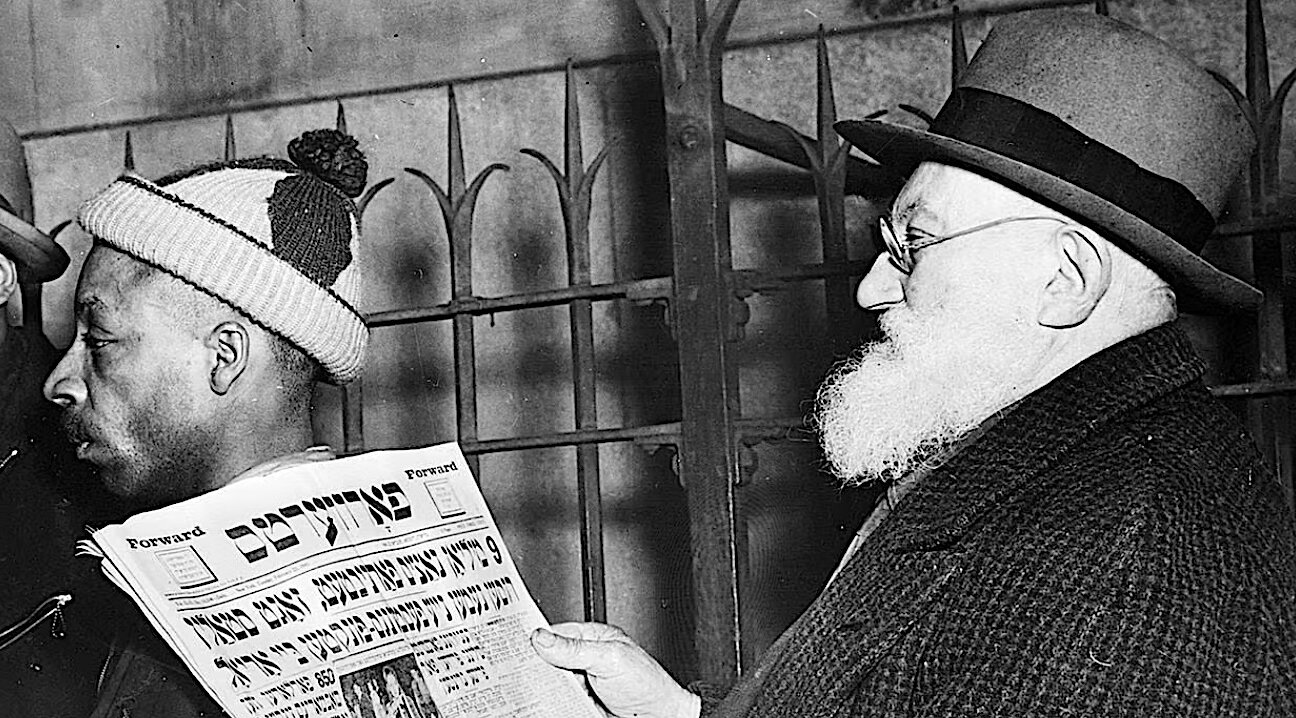A Yiddish parody of the Hebrew prayer for rain
The folk song is performed here by the late cantor Mordechai Hershman

Photo by Flickr
On Shemini Atzeret, the eighth day of Sukkot, Jews read tefillat geshem, an ancient Hebrew prayer for rain, during synagogue services. The prayer beseeches God to bring the Land of Israel enough rain to ensure a plentiful crop season. The prayer mentions a mysterious angel named Af Bri.
In this recording shared to YouTube, the late cantor Mordechai Hershman sings a Yiddish folk song called Af Bri that seems to parody the text of the prayer. Bemoaning the fact that there’s no money in the house, the narrator complains about the wet, muddy autumn weather he needs to contend with (presumably in an Eastern European shtetl). “Who needs more rain?” he seems to be saying.
Although we, the listeners, sympathize with the poor man’s lot, hearing him singing about his troubles to the melody of a sacred prayer amplifies the irony, creating an unmistakably comic effect.
The lyrics in English transliteration and in Yiddish follow the clip below.
Translation: The morning after the holiday, we need to buy potatoes, but there’s no money in the house. The muddy winter’s coming, the boots are full of patches, and still there’s no money. It’s as cold and wet inside the house as it is on the street, the roof is broken, the walls are crumbling, and still there’s no money. We still owe the schoolteacher his pay for last year, our son is wearing a torn coat, there’s no dowry for our daughter, my wife is cursing me because there’s no food in the house, and still there’s no money.
Af bri, af morgn nokh yontef in der fri
In gas darf men loyfn
Kartoflyes darf men koyfn
Un kayn gelt iz alts nishto.
Der vinter kumt tsurik, oy oy oy
In droysn vert groyse blotes
In di shtivl zenen gole lates
Un kayn gelt iz alts nishto.
Itas — in shtub iz kalt un nas vi afn gas
Der dakh iz tsebrokhn
Un di vent zenen tsekrokhn
Un kayn gelt iz alts nishto.
Dem melamed kumt nokh far yenem zman, oy oy oy
Der bokher geyt mit a tserisenem kaftan
Un di tokhter hot nisht kayn nadan
Un kayn gelt iz alts nishto.
Shem sar — in shtub iz nishto a tsener
Me zol azoy bahit zayn fun tsar
Es kumt on peysakh un der seyder
Nishto kayn shikh, kayn kleyder
Un kayn gelt iz alts nishto.
Un di vayb shelt mit toyte kloles – oy oy oy
Nishto in shtub kin bisn
Di kinder geyen opgerisn
Un kayn gelt iz alts nishto.
אַף ברי, אויף מאָרגן נאָך יום־טובֿ אין דער פֿרי,
אין גאַס דאַרף מען לויפֿן
קאַרטאָפֿליעס דאַרף מען קויפֿן
און קיין געלט איז אַלץ נישטאָ.
דער ווינטער קומט צוריק, אוי אוי אוי
אין דרויסן ווערט גרויסע בלאָטעס
אין די שטיוול זענען גאָלע לאַטעס
און קיין געלט איז אַלץ נישטאָ.
אותּת, אין שטוב איז קאַלט און נאַס
ווי אויפֿן גאַס
דער דאַך איז צעבראָכן
און די ווענט זענען צעקראָכן
און קיין געלט איז אַלץ נישטאָ.
דעם מלמד קומט נאָך פֿאַר יענעם זמן, אוי אוי אוי
דער בחור גייט מיט אַ צעריסענעם קאַפֿטאַן
און די טאָכטער האָט נישט אויף קיין נדן
און קיין געלט, און קיין געלט איז אַלץ נישטאָ.
מע זאָל אַזױ באַהיט זײַן פֿון צער
עס קומט אָן פּסח און דער סדר
נישטאָ קיין שיך, קיין קליידער
און קיין געלט איז אַלץ נישטאָ.
און די ווײַב שעלט מיט טויטע קללות — אוי אוי אוי
נישטאָ אין שטוב קיין ביסן
די קינדער גייען אָפּגעריסן
און קיין געלט איז אַלץ נישטאָ.
A message from our Publisher & CEO Rachel Fishman Feddersen

I hope you appreciated this article. Before you go, I’d like to ask you to please support the Forward’s award-winning, nonprofit journalism during this critical time.
At a time when other newsrooms are closing or cutting back, the Forward has removed its paywall and invested additional resources to report on the ground from Israel and around the U.S. on the impact of the war, rising antisemitism and polarized discourse.
Readers like you make it all possible. Support our work by becoming a Forward Member and connect with our journalism and your community.
— Rachel Fishman Feddersen, Publisher and CEO






























